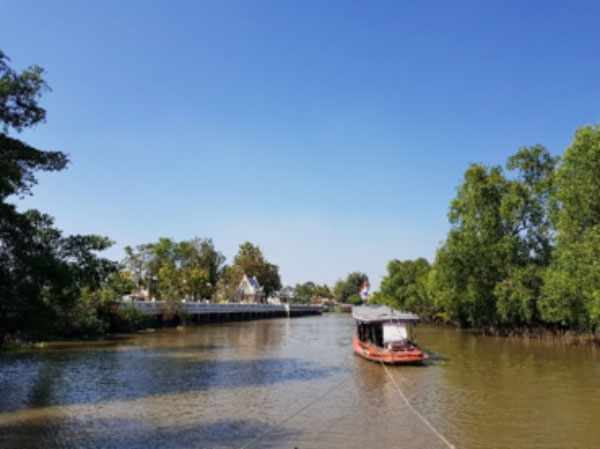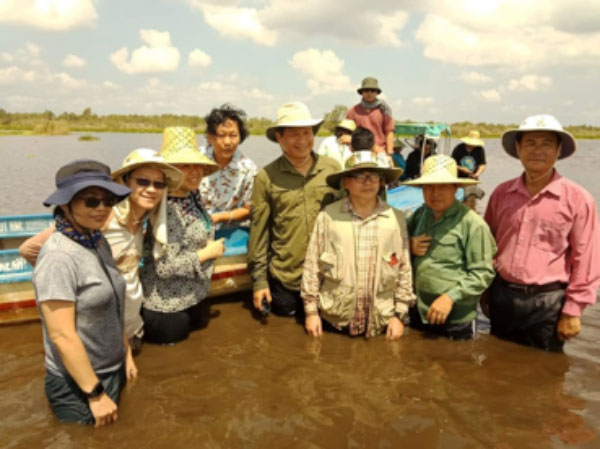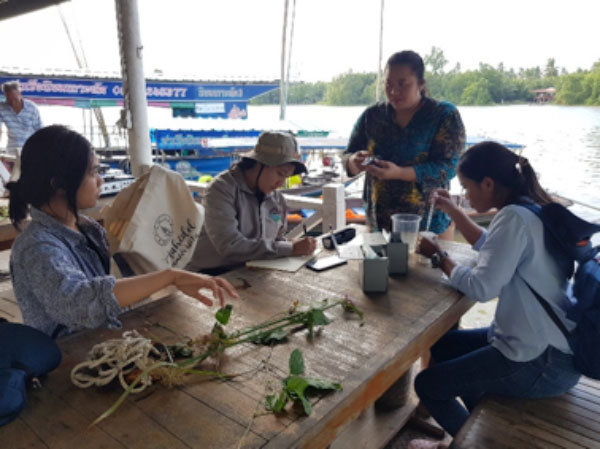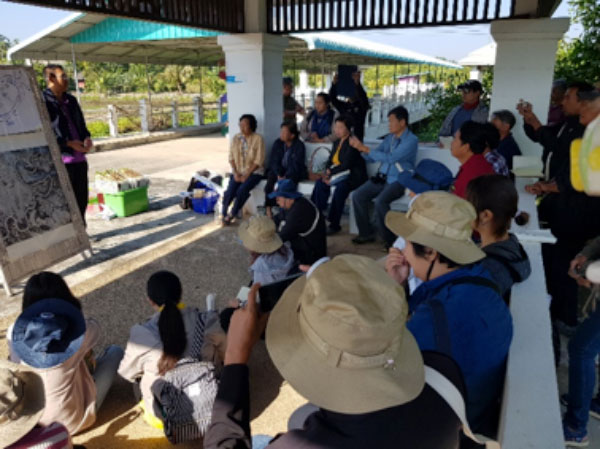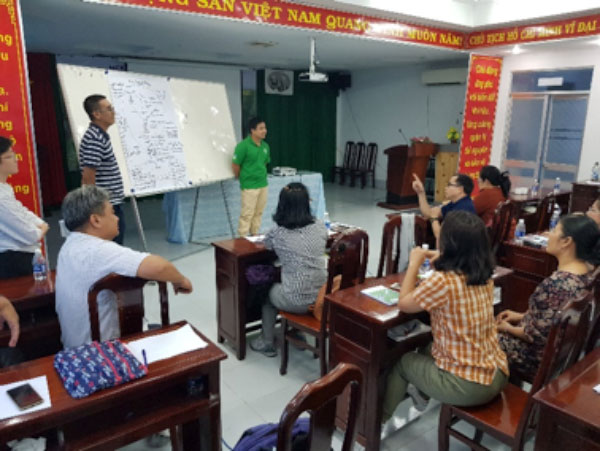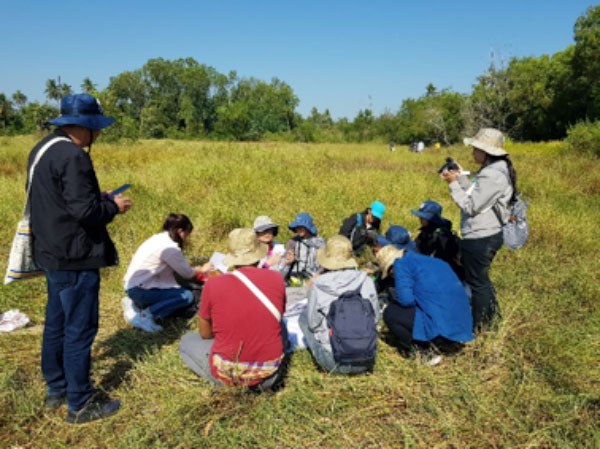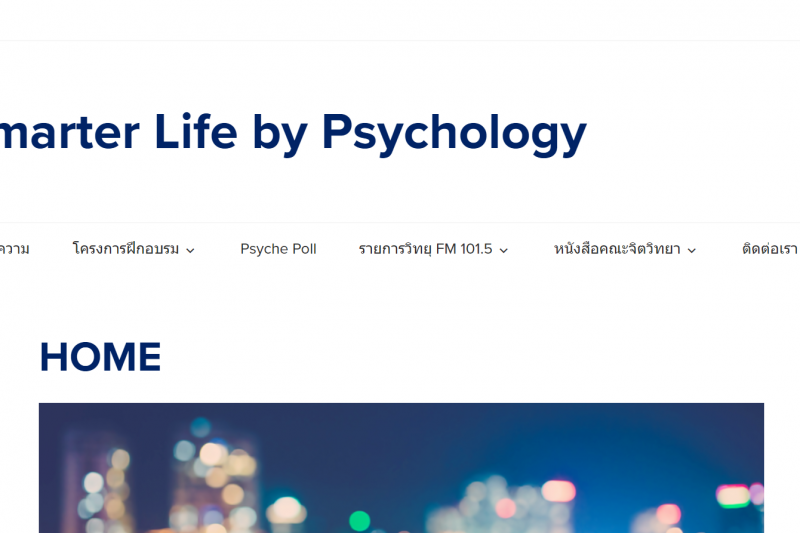Revealing the University network acting as guardians of the wetland forests of the Mekong River basin.
The ecosystems of wetlands around the world are important to the existence of life (life-supporting system) that connects plants, animals, and various microorganisms while also holding social and economic value to humans on a local, national, and international level. Additionally, wetlands are also classed as ecosystem services that provide many benefits from nature to humans in many aspects such as acting as a water reservoir and slowing down the flow of water, retention of nutrients, trapping toxins, preventing the erosion of the coast, acting as a nursery and habitat for aquatic animals, being an important source of protein for humans, being a transport route, and being an area for study, learning, and resting.
In Thailand, there are around 36,616.16 square kilometers of wetland or 22,885,100 rai, which is 7.5 percent of Thailand and can be split into 44.8 percent freshwater and 55.2 percent saltwater. The wetlands in Thailand are currently being continuously threatened by developmental and invasive activities in various forms including agriculture, fisheries, urban expansion, and industrial development. This has caused the areas of wetland to be rapidly destroyed, similar to the wetlands of the Mekong River basin which even though there are still areas of wetland left, but it is currently facing deterioration and negligence of conservation and proper management.
Chulalongkorn University via the Department of Biology, Faculty of Science, was able to realize and foresee the importance of the issue mentioned above and therefore sought a way to revive and conserve the area of wetlands as a whole. This was done by signing an agreement to create The University Network for Wetland Research and Training in the Mekong Region which was founded in the year 2545BE and is comprised of 8 founding universities from 4 different countries including Chulalongkorn University, Mahidol University, Can Tho University, Nong Lam University, National University – Ho Chi Minh, National University of Laos, Royal University of Agriculture, and Royal University of Phnom Penh. The network was created to build knowledge and empower a new generation of wetland researchers to step in and be a vital force in the safeguarding of wetlands. Additionally, strengthening the understanding and appreciation of wetland areas and being conscious of the threats that are affecting the economic and social development of the entire Mekong River basin. Currently, there are 20 participating universities, and the network has received budgetary support from international organizations including ASEAN Regional Center for Biodiversity Conservation, International Crane Foundation, John D and Catherine T MacArthur Foundation, IUCN/UNDP/GEF Mekong Wetland Biodiversity Conservation Program, Rockefeller Foundation, USGS National Wetland Research Center, and Sustainable Mekong Research Network (Sumernet).
The University Network for Wetland Research and Training in the Mekong Region has a mission to organize educational training about wetland ecosystems both in theory and in practice, partnering with universities within the network by taking turns to host the training in each country. Furthermore, they also demonstrated how to use wetland management tools, especially in areas that are in the Ramsar Convention which is a treaty between countries for the conservation and sustainable use of wetland areas. Relevant documents were translated into Thai such as the Ramsar Site Information Sheet, Rapid assessment of wetland ecosystem services, and the Ramsar Site Management Effectiveness Tracking Tool: R-METT, which helped participants and the relevant people to be able to create a conservation approach, monitor results, and evaluate the performance of various projects that are happening in the wetland areas more efficiently.
The most recent beneficial project of the network is the Train-the-trainers Training Course which was held on the 23rd of March – 7th of April 2562BE in Vietnam. The representative universities from the 4 countries including Thailand, Vietnam, Laos, and Cambodia working together to write a project proposal to use for international research regarding “The role of wetlands in water security for the Mekong region”. Researching and monitoring hydrological information about wetlands, biodiversity, and taking advantage of the service from wetland ecosystems. Furthermore, creating tools in the form of gaming and simulation for the exchanging of important knowledge about wetlands and the potential risks to the relevant groups locally. This led to the creation of another important project called Mekong WET: Building Resilience of Wetlands in the Lower Mekong Region under the supervision of the International Union for Conservation of Nature (IUCN) who’s mission is to support organizations in Thailand, Laos, Cambodia, and Vietnam to work according to the commitments in the Ramsar Convention.
Chulalongkorn University has also used this experience of working in collaboration with an international network to integrate and improve the content in their Biology Laboratory subject, which is taught to first years, by using documents containing the evaluation of ecological services in wetlands. Additionally, letting students experiment acting as guardians of wetlands by evaluating the service or the ecosystems in the Chulalongkorn University Centenary Park which is considered a type of wetland. This was so students could propose guidelines for managing this 28 Rai park so it may create sustainability following the Ramsar Convention.
BY
Faculty of Science, Chulalongkorn University
Related articles:
Others
Open Data and Applications by Chula
Chulalongkorn University provides a wide range of publicly accessible data, programs, and applications.
Chulalongkorn Stages Future Sustainable Asia to Discuss Inequality
Chulalongkorn University in partnership with KFAS co-organizes the inaugural Bangkok Forum of “Future Sustainable Asia” to discuss “Integrating Knowledge for Social Sustainability.”

